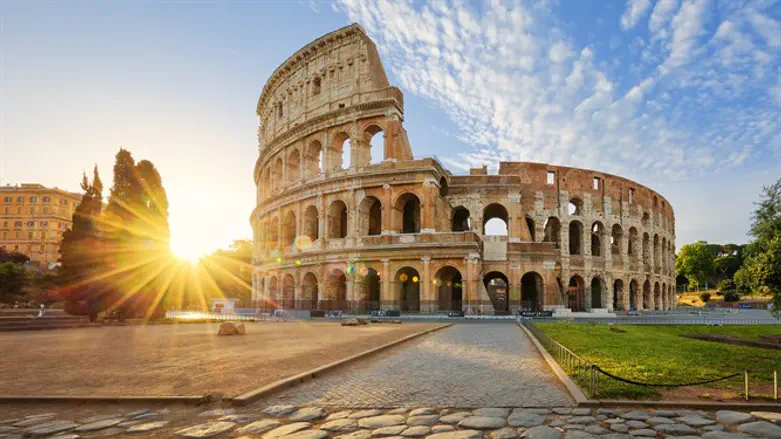
Dear Friend,
Letter writing is making a comeback. People are writing to each other as if we lived in a previous century and had the luxury of time to do so. I am not talking about perfunctory emails. I am referring to a more thoughtful and longer correspondence that tries to share what our lives are like now, “under the volcano” of this plague. This awful epidemic is drawing many people closer together, at least virtually.
I wonder how we’d handle losing electricity?
There are two things very much on my mind.

I wonder how we’d handle losing electricity?  First, Natan Sharansky’s perspective on our current self-isolation, namely, that he endured solitary confinement and torture for nine years in the Gulag and survived both physically and psychologically. Our present situation is less dire, more comfortable, and should be far more manageable since we are in touch with others and with news of the whole world. We know that we are not alone and have not been forgotten.
First, Natan Sharansky’s perspective on our current self-isolation, namely, that he endured solitary confinement and torture for nine years in the Gulag and survived both physically and psychologically. Our present situation is less dire, more comfortable, and should be far more manageable since we are in touch with others and with news of the whole world. We know that we are not alone and have not been forgotten.
Second, I am thinking about Italy. It is one of the most beloved countries in the world and we are reading about the rapid-fire deaths of an alarming number of its inhabitants. As a lover of both Italy and Italian opera, I am experiencing this tragedy somewhat personally.
I first visited Italy in 1969 and have been back there many times. I’ve lived in Rome, Assisi, and Venice, and once took rooms on Lake Como—or was it Lake Maggiore? I’ve been to Florence, Pisa, Capri, and Sicily, and to the currently hard hit cities in Northern Italy: Milan Venice, and Verona.
I used to ride around Rome in a taxi and when I’d pass the Castel Sant’ Angelo I’d lean out the window and call out “Tosca! Don’t jump” and when I’d pass the Arch of Titus, I’d say: “That is our our golden menorah, stolen from the Second Temple, give it back.” And, in the Vatican, I’d ask the guide to see the “s’forim,” Jewish sacred books, no doubt stored at depth level and off limits to the tourists.
I also remember walking to the spot where the church burned Giordano Bruno at the stake for heresy – only to find cafe life in full bloom, mimes, music, tourists, verily as merry a place as the Tower of London. What is it in us that needs to turn the gallows into gaiety?
I always visit the neighborhood where I once lived in Rome near the Piazza Navona; last time I was there it was also filled with tourists galore, musicians, street performers. Of course, I always pay my respects to my old friend Moses, as sculpted by Michaelangelo. Oh how regally he sits, a bit of a Poseidon-like figure, literally wearing "horns" for that is how the artist translated Moses' radiant face and aura.
Let me share with you a word-snapshot of my last meal in Rome at the Ciampini, a restaurant perched high above the well-touristed Spanish steps.
“Below, the crowds surge ceaselessly, their cameras and children in tow. The restaurant lives at another pace, exists in another time. No one is hurried, and due to the mid-afternoon hour, most diners have already left; only a few linger on.
Ciampini has a garden, an indoor fountain filled with lazy turtles (!) sunning themselves, abundant, consoling greenery, lattice work, proper table linen, old-fashioned gas lights, and extraordinary views: One can see St. Peters in the distance. And churches, rooftop gardens, a huge expanse of sky.
This little piece of paradise is blessedly silent. No music, not even classical music. No cellphones, no loud or raucous conversations. The waiters speak softly and are gracious, solicitous.
Sitting here is a bit like sitting here fifty or a hundred years ago. We are caressed, enveloped, by beauty, timelessness, seduced, won over by both the elements and civilization. We relax. Nature and Art, Roman-style, show us how much better everything is once we slow down, sit still, pay attention, take the moment in, have an unhurried meal.
We are the only diners. Three waiters in green jackets serve us as if we are royalty. It is like a dream. Or a movie with Joan Plowright or Maggie Smith that Americans love so much.
Sitting here is a bit like re-living every expatriate's love affair with nineteenth and early twentieth century Italy. And so I become a character in an Ivory-Merchant film—-no, in a novel by Henry James—no, maybe in a novella by Thomas Mann, and I, too, do not see how or why I should ever leave.”